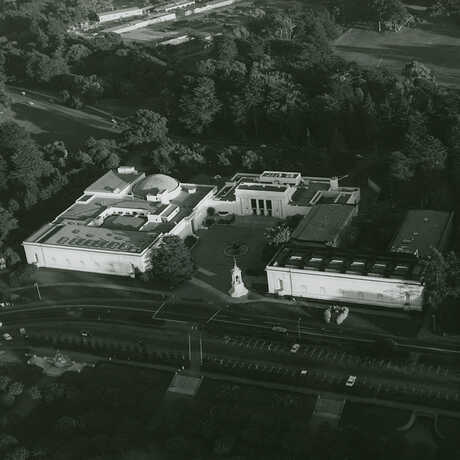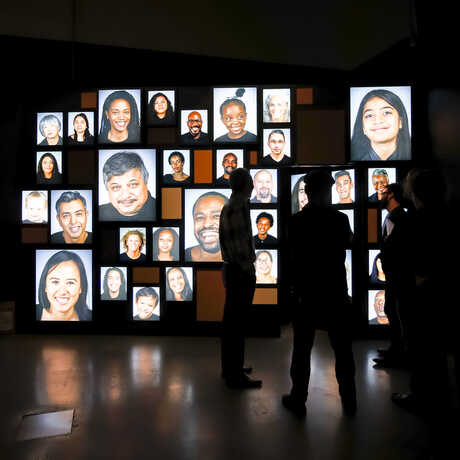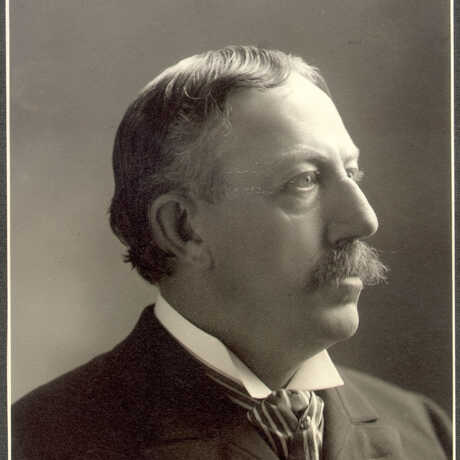Founded in 1853, the Academy Library is a research library devoted to natural history and the natural sciences. Explore our extensive collections, including rare books, serials, maps, and photography.
0
This seminar series is part of the Academy’s DEIA (Diversity, Equity, Inclusion and Access) efforts, and a follow up to an internal workshop highlighting the Academy’s own racist and colonial legacies. This summer we are hoping to learn more about the history of scientific racism, colonial legacies in museums and collections, community partnerships in research, and any other topics that address racism and colonialism in science.
Recorded talks:
- The Problematic Legacy of David Starr Jordan by Kate Montana (Academy)
- David Starr Jordan (1851–1931) was a widely revered ichthyologist, founding president of Stanford University, and intermittent president and curator of fish at the California Academy of Sciences. Perhaps less well-known, however fairly well-documented, was his leadership role in the American eugenics movement. Our research into the archives at the Academy and at Stanford revealed a fuller picture of the life of Jordan and his influence that affects the Academy and science as a whole to this day.
- https://youtu.be/ZwTl73j6pBc
- Slaving Science: Natural Historical Collecting and the British Slave Trade by Dr. Kate Murphy (California Polytechnic State University)
- We rarely think about the wretched, inhuman spaces of slave ships as having anything to do with natural history. Yet this talk reveals how thousands of scientific specimens were gathered by means of the eighteenth-century British transatlantic slave trade, including some specimens that survive in modern scientific collections.
- https://youtu.be/lM4qUleVO84
- Training future scientist in Madagascar by Dr. Brian Fisher (Academy)
- Madagascar Biodiversity Center (MBC) is a Malagasy NGO and the Academy's partner in Madagascar. MBC activities include exploratory field research, biodiversity monitoring, insect agriculture, and capacity building. In this talk, Dr. Fisher discusses how MBC is developing a novel approach to collaborating with international PIs and local University professors to train local students to become better researchers and to ensure students benefit from international collaborations.
- https://youtu.be/8e0epHdjxmY
- Goldilocks models in ecology and evolution by Tanjona Ramiadantsoa (Madagascar Biodiversity Center)
- With the era of big data and advanced computing, complex models are often desired. In this talk, Dr. Ramiadantsoa will discuss about the trade-off between generality and complexity using two examples: inference from phylogenetic data and insights from fire-vegetation model.
- https://youtu.be/YUArpdQZNUQ
- The fieldwork that we envision: A future of equitable field biology and reciprocity with local communities by Valeria Ramírez Castañeda & Dr. Rebecca Tarvin (UC Berkeley)
- Conducting fieldwork often involves multiple actors from different contexts and cultures. However, existing power imbalances perpetuate inequities within and among the research team and local communities. Based on experiences and input from a diverse group of global collaborators, we provide suggestions for action-oriented approaches to making field biology more equitable, with particular attention to how those with greater privilege can contribute. Their paper:"A set of principles and practical suggestions for equitable fieldwork in biology"
- https://youtu.be/G_dO1NP9HDU
- Colonial History of the Academy and Science by Rebekah Kim (Academy)
- In order to show a more complete and accurate depiction of the history of the Academy, and science as a whole, we must continue to examine and learn from our own past. Join Rebekah Kim, the Academy’s Head Librarian, as she sheds light on the history of science, the legacy of colonialism and racism at the Academy, and how we can harness the learnings from our past to forge a more equitable future of science.
- https://www.youtube.com/live/pyyhX5N8O0k
0
About the Library
Contact the Library
Academy Library and Archives
California Academy of Sciences
55 Music Concourse Drive
San Francisco, CA 94118







